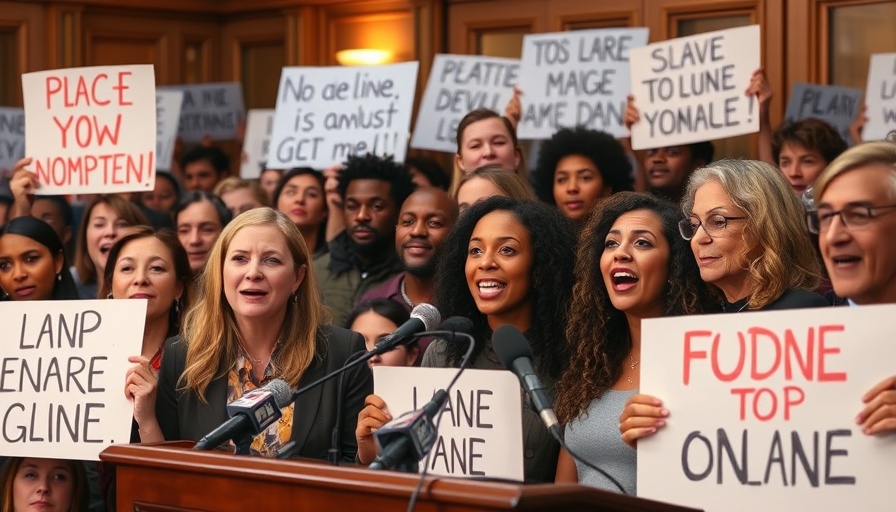
A Historical Case of Justice: The Return of a Wrongly Deported Worker
In a landmark decision, the U.S. Supreme Court has mandated the reinstatement of a union sheet metal worker who was wrongfully deported. This case not only emphasizes the complex intersection of immigration law and labor rights but also serves as a rallying point for discussions surrounding fair treatment in the workplace.
The worker, who had dedicated years to his craft, faced deportation due to a clerical error, highlighting the fragility of workers' statuses in the face of bureaucratic missteps. Moreover, it opens a broader conversation about the rights of immigrant workers and the vital role they play in industries such as construction—often subjected to harsh realities despite their essential contributions.
The Human Element Behind Labor Laws
This decision is particularly significant for the construction sector, an industry significantly reliant on immigrant labor. According to industry reports, immigrants constitute one-third of the construction workforce, and laws directly affecting their rights can lead to profound implications for their families and the job market. The pressure on such workers, coupled with the constant threat of deportation, creates an environment where fear can overshadow the pursuit of better working conditions.
The Intersection of Rights and Responsibilities
As we celebrate this victory in the legal arena, it’s crucial to reflect on what this means for commercial construction companies and clients who value not just operational efficiency but ethical practices. The implications extend beyond the individual, reminding stakeholders in the construction industry that moral considerations should be as critical as cost management.
Integrating Technology for Transparency
In light of this case, one has to wonder about the role of technology in safeguarding immigrant workers’ rights. Utilizing construction management software that allows for transparent documentation of employee status could prevent situations similar to that of our protagonist. Software solutions that integrate immigration status tracking ensure that all workers are treated fairly and rightfully compensated based on their legal standings.
Future Trends in Workforce Management
Looking towards the future, construction companies must adapt to not just regulatory updates but also to the moral and ethical expectations of their clients. As the industry gears towards modern critiques of labor practices, companies incorporating fair labor practices into their ethos will likely thrive. Ultimately, a commitment to ethical employment practices can foster a more stable workforce, thus enhancing project efficiency and outcomes.
Empowering Through Information
This Supreme Court decision should serve as a clarion call for clients within the construction realm to advocate for humane practices. Being informed about labor laws and the personal stories behind them can empower companies to make decisions that positively champion the workforce.
So, as we delve deeper into the intricate details of this ruling, let's remember that supporting fair labor practices isn’t just good ethics—it’s good business. Clients are encouraged to engage actively in discussions surrounding labor rights and to prioritize relationships with companies committed to fairness.
 Add Row
Add Row  Add
Add 




 Add Row
Add Row  Add
Add 

Write A Comment